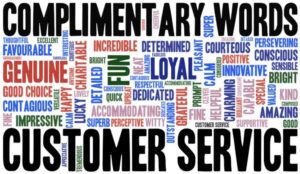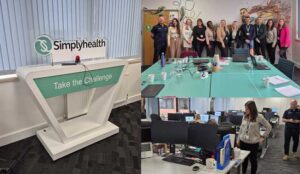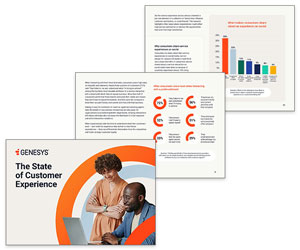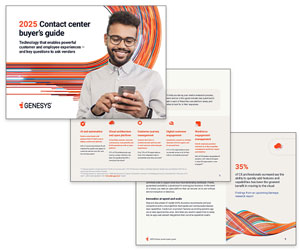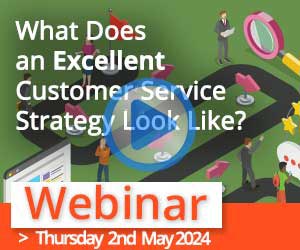Gina Clarkin of Genesys discusses what the contact centre can learn from Shakespeare’s innovation.
The Oxford English Dictionary traces the first printed occurrence of 1,700 words and phrases to Shakespeare.
Some of these might have been spoken commonly by others, but 400 brand-new words are known beyond dispute to have originated with Shakespeare.
These words include accessible, accommodation, addiction and amazement, which are just some of the words under A.
Sometimes greatness means doing amazing things within existing constraints; Shakespeare did this. But sometimes greatness means charting new paths – expanding one’s array of tools. And Shakespeare did that with language.
Some businesses chart new paths by shedding constricting platforms and expanding their array of tools.
In a recent Genesys webinar, 69% of attendees polled cited the primary reason for moving off their current platform was that system limitations affected business.
No other reason even came close: risk mitigation, consolidation of systems and a desire to move to the cloud each scored less than 12%.
The risks of limitations affecting the business manifest in different, and often subtle, ways with the:
Ability to exceed customer expectations: Knowing how to support omnichannel, technologies to facilitate the best matching, and artificial intelligence (AI)/machine learning/automation to offer more personalisation, faster resolution, and greater operational efficiencies.
Ability to measure what matters: Successful contact centres are shifting solely from traditional transactional metrics (AHT, CSAT) to a mix, with emphasis on quality-oriented measures like customer retention and lifetime value. Know what your approach will be.
Ability to attract and retain the skilled workforce: What type of agent experience are you creating? Does it involve upskilled agents to handle more complex tasks? Is IT churn resulting from constant break/fix cycle of ageing technology or is staff exiting for new technology opportunities? How will you deal with the implications of the “gig” economy?
Ability to handle data: Understand how existing data models that were designed for structured data must evolve to support new channels with unstructured data. Determine if your platform supports the insights and visualisations required for modern customer engagement.
Ability to be agile: How will you obtain and consume new technology in order to take advantage of the latest innovations? If you want to go to the cloud, do you have a clear path that lets you proceed at your pace?
These are several areas for consideration. But the transformation has its rewards. The Forrester Customer Experience Index data offers evidence that customer experience leaders can outperform “laggards” in their field (not to mention the S&P 500).
Your peers are leading customer experience transformation efforts within their companies to help the business gain sustainable competitive advantage.
Instead of persisting in the familiar, Shakespeare overcame limitations that blocked his potential. He did more than write plays; he gave us containers for human expression and widened our ability to know and be known. He created new ways to connect with and delight audiences that stood the test of time.
Imagine what you could do for the business, and your customers, if you overcome the limitations imposed by ageing contact centre systems.
You don’t have to be Shakespeare to find new ways to connect with and delight your customers. But it wouldn’t hurt to borrow a page from the Bard’s playbook.
Author: Robyn Coppell
Published On: 6th Sep 2018 - Last modified: 2nd Oct 2018
Read more about - Guest Blogs, Genesys









